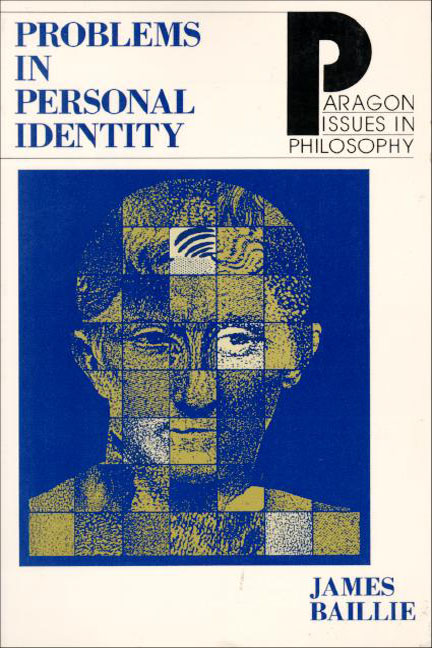Baillie then scrutinizes the methodological assumptions that have guided these debates. He casts a critical eye over the use of thought experiments, wherein conclusions regarding identity are derived from our responses to various bizarre situations, and argues that many influential arguments are flawed due to a misuse of this methodology.
The remainder of the book, Problems in Personal Identity, discusses issues that remain, once a more modest methodological framework is imposed. The author focuses on real-life conditions, both typical and pathological, and, in individual chapters on amnesia, split-brains, and Multiple Personality Disorder, he shows that the real issues of personal identity are rooted within scientific research rather than imaginative speculation.
TABLE OF CONTENTS
Acknowledgments
Preface
Chapter 1. INTRODUCTION
Prelude • Varieties of Identity • Reductionism and Non-
Reductionism • Reductionist Criteria of Identity • The Menu
Chapter 2. IDENTITY AND SURVIVAL
Williams’ Dilemma • The Closest Continuer Theory •
The Psychological Spectrum • The Physical Spectrum •
My Division • The ‘Only X and Y’ Rule • Appendix: Lewis-
The Indeterminacy of Population
Chapter 3. ASPECTS OF NON-REDUCTIONISM
Butler’s Charge of Circularity • Quasi-Memory • Swinburne’s Simple
View • Non-Reductionism and Dualism • The Subjective View • Empirical Grounds
for Non-Reductionism?
Chapter 4. WHAT AM I?
Introduction • Locke’s Man/Person Distinction • Natural Kinds and Natural
Laws • Once an “f,” Always an “f” ? • Conditions of Survival • Teletransportation
Revisited • Is Identity Sortal-Relative? • Appendix: Discontinuous Persons?
Chapter 5. METHODOLOGY MATTERS
Uses of Thought-Experiment • Abuses of Thought-Experiment • Human Freedom
and Natural Laws • Thought-Experiments Reassessed • What Matters in Survival?
Chapter 6. MEMORY
Locke’s Criterion • ‘Memory’ Dismantled • Memory Storage • Parfit’s
Psychological Criterion Tested • The Sleeping Pill • Varieties of Memory
• Two Case Histories • Appendix: Psychogenic Fugue
Chapter 7. COMMISSUROTOMY AND THE UNITY OF MIND
Introduction • Commissurotomy Described • The Experimental Background
• Minds, Brains, and Persons • Puccetti’s ‘Two Person’ Theory • Cognition
in the Right Hemisphere • Sperry’s ‘Two Mind’ Theory • The Subjective View
• Sperry Challenged • Split Brains and Single Minds • Appendix: My Physics
Exam
Chapter 8. DEGREES OF PSYCHOLOGICAL INTEGRITY
MPD: Historical Background • Minds, Persons, and Personalities • Mary
and Mary • All about Eve • Dissociation and Hypnosis • The Self • A Matter
of Degree
In Conclusion
Suggested Further Reading
Bibliography
Index of Names
Index of Subjects
JAMES BAILLIE is assistant professor of philosophy at the University of Portland and the author of numerous papers and articles on personal identity, philosophy of science, and philosophy of psychology.





